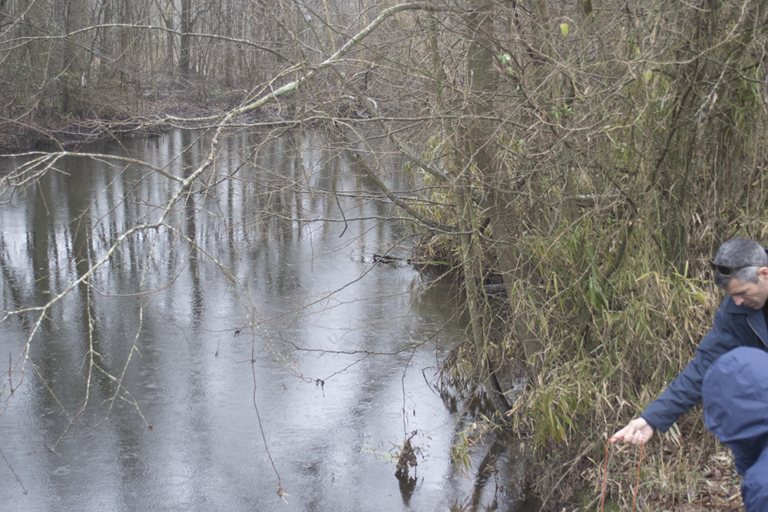Hog Industry’s Assertion that Black River is Clean Doesn’t Stand Up to Scrutiny
By: Waterkeeper Alliance

100% of Water From Black River Sampled Exceeded State Safety Levels
RALEIGH — Waterkeeper Alliance and Cape Fear River Watch, a Waterkeeper Organization, announced today that water sampling data taken from the Black River basin exceeded North Carolina State standards for fecal coliform bacteria, indicators of the presence of animal waste.
The relative health of the Black River was highlighted recently in paid advertisements by the pork industry, which claimed that the Black River, running ‘right in the middle of hog country,’ remains one of the cleanest in the state.

“This statement is simply untrue,” said Christian Breen, North Carolina CAFO Coordinator at Waterkeeper Alliance. “The test results speak for themselves. We sampled every major tributary of the Black in multiple locations and 100% of the nine samples exceeded the North Carolina State standard for fecal coliform bacteria. This is highly indicative of waste in the water from industrialized hog operations within the Black River Basin that operate with antiquated lagoons and spray fields for waste disposal.”
The Black River, part of the lower Cape Fear River basin, has its headwaters in Sampson County, NC, home to about 2,000,000 hogs confined in industrialized facilities. Waterkeeper Alliance and Cape Fear River Watch took water quality samples from 9 locations on all of the major tributaries to the Black River on January 22, 2016. Testing at a state certified lab confirmed that every sample taken exceeded the state standard for fecal coliform bacteria. Fecal coliform bacteria are an indicator of the presence of waste in water.
“The Black River is a state treasure, and we now see that time is running out for it to remain able to mitigate the impacts of pollution from industrialized hog operations,” said Kemp Burdette, Cape Fear Riverkeeper. “Until the industry, which is controlled by multinational corporations and not family farmers, decides to invest in the use of superior treatment technology to treat raw hog waste before it enters our waterways, Waterkeeper Alliance and North Carolina Riverkeepers will continue to sample and hold them accountable for their actions.”
These results are not news for the hog industry. Minutes from the Lower Cape Fear River Program meeting convened on November 17, 2015 reveal that Dr. Michael Mallin (UNC-Wilmington) presented water sampling results from August and September 2015 in the Lower Cape Fear Basin. The “South River [a major tributary of the Black] had high chlorophyll (145 ug/L) and fecal coliform counts (41,000 col/100 mL). Many of the North East and Black River sites had elevated [fecal] coliform (9000 to greater than 60,000 col/100 mL).” In attendance at the meeting was a representative from Smithfield Foods, the foreign owned corporation that controls most hog operations in North Carolina either by ownership or contract.